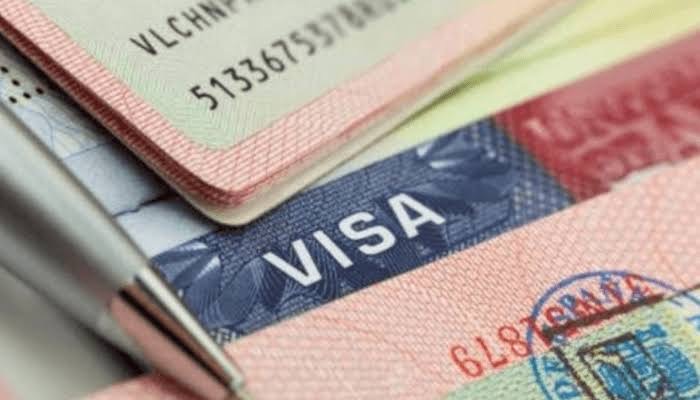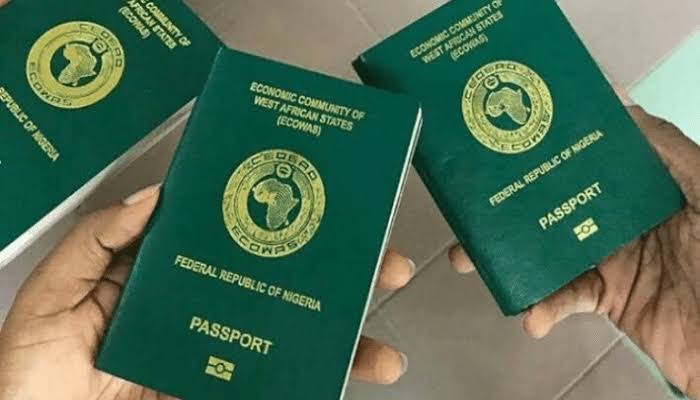Ethiopia, Turkey, and the United Arab Emirates (UAE) have withdrawn previous privileges for Nigerian passport holders, including visa on arrival, e-visa, and passport issuance. Turkey no longer allows Nigerian passport holders to obtain e-visas. The e-visa was an easy process for Nigerians.
In 2022, the United Arab Emirates (UAE) banned citizens of Nigeria and some other African countries from entering the country’s capital, Dubai. Despite several interventions by the Nigerian government, the visa ban has yet to be lifted.
Aviation Minister Festus Keyamo said the UAE will lift the entry ban on Nigerians in October, but no one knows if this will become a reality. Similarly, Ethiopia stopped issuing visas on arrival to Nigerians two years ago and has refused to reverse the decision to date.
Airlines have been sending circulars to passengers since 2022, advising them to apply for visas at the Ethiopian Embassy in Abuja before traveling.

Bolanle Olukani, daughter of Ambassador Ayoola Olukani, former Nigerian envoy to Austria from 2011 to 2015, recently complained that her parents were denied visas on the grounds that they would not be able to return home. Olukani, who complained on Monday that she had a Nigerian passport on her X-handle, said her father, a retired ambassador who had lived in Austria for three years, was denied a visa alongside his mum over fear of absconding.
She wrote, “I just want you guys to know that the Nigeria passport has really been bastardized. My father is a retired Ambassador who lived and served in Austria for three years. He applied for a Schengen visa with my mother, but the Austrian embassy refused the visa.” She also complained that her father’s 30 years of work as a diplomat was not respected.”
“Do you realize how undiplomatic, uncouraged, and disrespectful to the country it is to deny a visa to a former diplomat? A diplomat who served for 30 years and visited more than 30 countries.”
The number of visa applications to South Africa has since fallen as Nigerians continue to suffer delays and refusals to enter Africa’s strongest economy. The number of study visas issued to Nigerians last year fell for the first time in three years, according to data compiled by Journalists from the U.S. Department of State.
According to the South African Visa Office, the office issued a total of 7,466 non-immigrant (F-1) visas in 2022, compared with 7,547 in 2022. Oritseweyinmi Oritsejafor, client advisor at Henley & Partners, one of the world’s leading destination and citizenship planning firms, Nigeria, in a recent interview with Journalists, said Nigeria is a clear example of the limited scope of mobility for African nationals despite being one of Africa’s economic powerhouses and the continent’s third richest country according to the 2024 Africa Wealth Report.
Olisejafor explained that Nigerian passport holders can only travel visa-free to a small fraction of the world’s GDP (just 1.5%) because only 45 destinations can be accessed visa-free with a Nigerian passport. In their view, this means that of the 8,200 billionaires living in Nigeria, those with Nigerian passports must overcome difficult foreign policy hurdles to participate in the remaining 98.5 percent of the world’s economic power, highlighting the need for strengthening passport power.
“The Henry Opportunity Index assesses 15 countries where investment migration takes place based on six parameters including quality of education, earning potential, career progression, employment prospects, economic mobility, and high quality of life. It provides investors with a benchmark to compare and identify locations with the best ecosystems to maximize career prospects and wealth for future generations.
“Using the same methodology and data sources as the Africa Wealth Report 2024, we quantified the opportunities of Africa’s wealthiest countries by assessing and ranking them to show how families in these countries can improve their life chances through investment migration and future-proof their future for the next generation,” she said.
She further explained that among the African countries assessed by the company, Nigeria has one of the lowest opportunity scores, with an opportunity score of just 14 percent, compared to, for example, Malta’s 55 percent, Spain’s 63 percent, the United States’ 81 percent and Switzerland’s 88 percent.

Nigeria ranks last in the list of the 20 worst passports in 2023 with only 46 countries accessible without a visa. This is according to the recently released Henley Passport Index for Q3, a prestigious ranking of all passports in the world based on the number of destinations their holders can travel to without a prior visa.
The index is based on proprietary data from the International Air Transport Association (IATA), the largest and most accurate database of travel information, and expanded by the research team at Henley & Partners.
After Nigeria, the countries with the worst passports are:
South Sudan with 46 countries accessible without a visa.
Congo: 45 countries.
Eritrea: 44 countries.
Iran: 44 countries.
Sudan: 44 countries.
Lebanon: 43 countries.
Kosovo: 42 countries.
Libya 41 countries,
Sri Lanka 41 countries, etc.
Singapore currently has the most powerful passport in the world. The Lion City beat Japan, which had the strongest pass for over five years.
Bankole Bernard, Group Managing Director (GMD) of Nigeria-based global travel management company Finchgrow Holdings, told Business Day that he always thought foreign countries were refusing to issue visas to Nigerian nationals because they don’t like Nigeria, but that’s not true.
“Developed countries are very particular about documents. Some agencies that help applicants with their paperwork don’t have enough knowledge to fill them up properly,” Bernard said.
Susan Akporiaye, former president of the National Association of Nigerian Travel Agents (NANTA), told Business Day that despite the weakness of Nigerian passports, there are still people who succeed and achieve heroic deeds in other countries. “The State Department needs to work harder to reduce the number of refusals. “
A lot of Nigerians don’t like to follow proper procedures when they migrate to other countries. The problem in Nigeria is that everyone just wants to leave and many don’t have a valid reason to do so,” the former NANTA chairman said.










